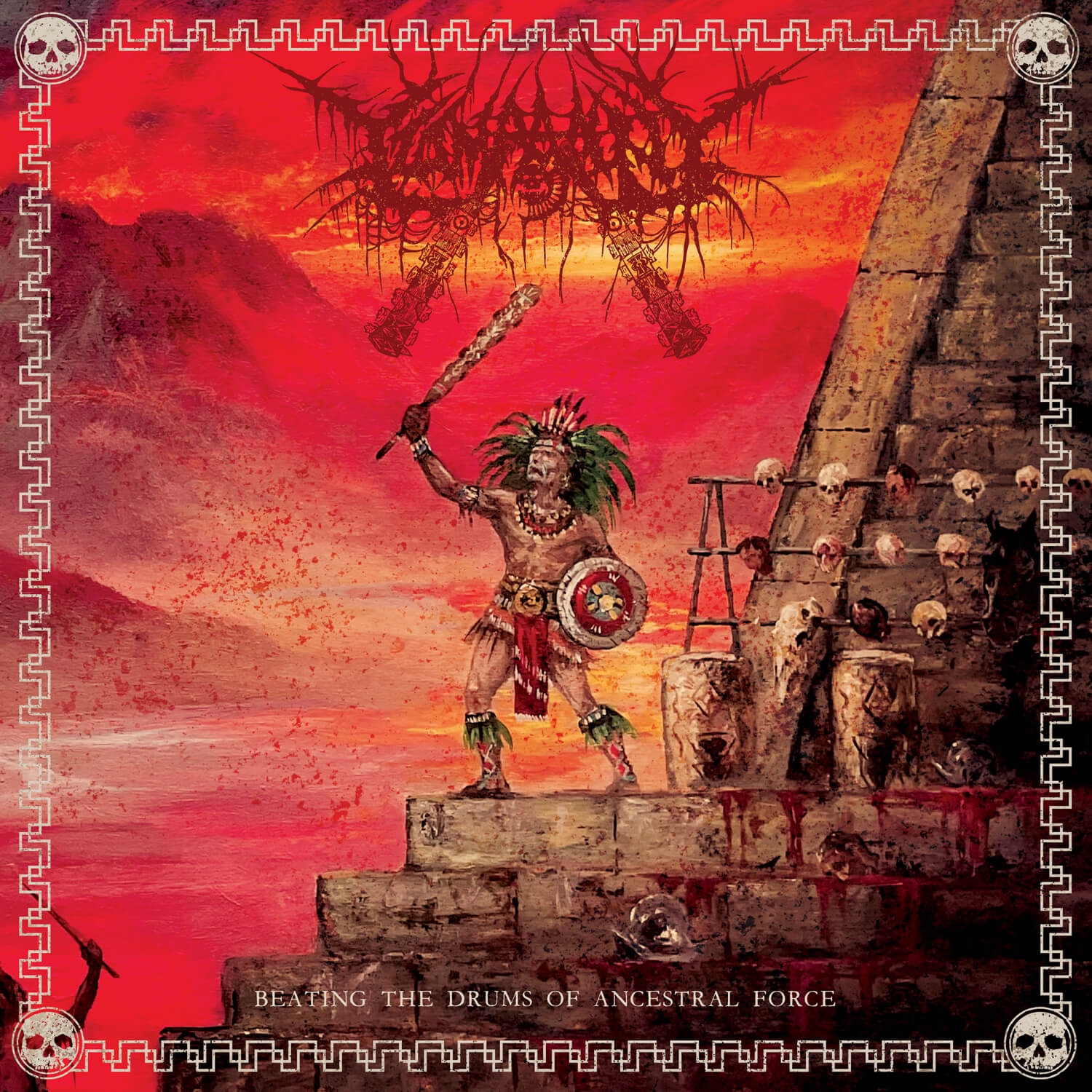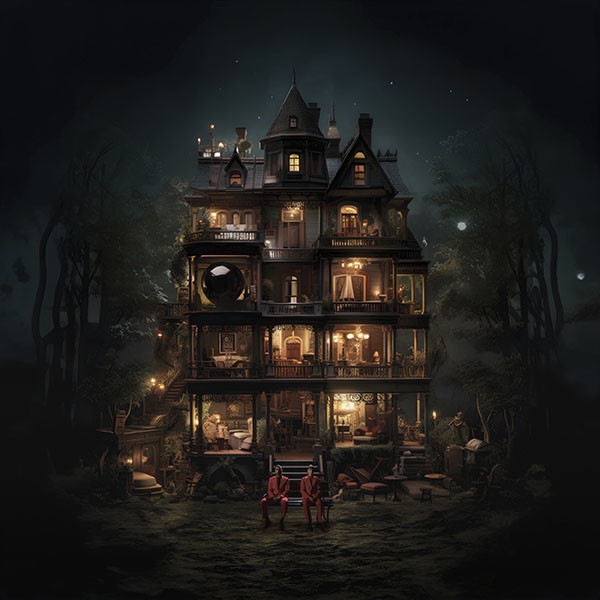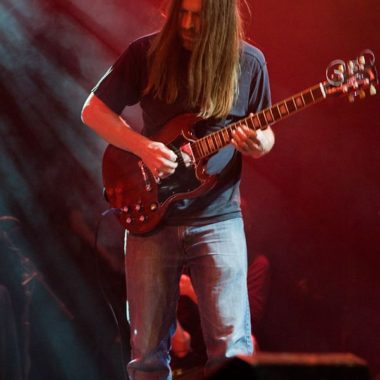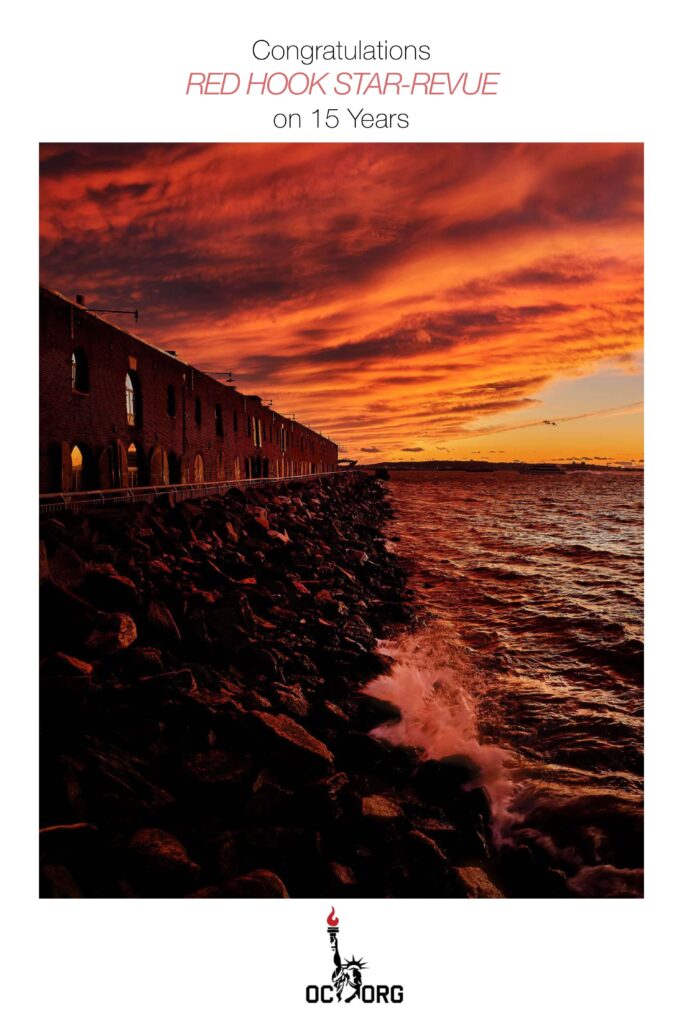Another music in a different chamber. The term “chamber pop” has been tossed about at least since the 1960s, when such prophetic composers as Burt Bacharach and Brian Wilson—as well as producers Shadow Morton, Billy Sherrill and Phil Spector, although they tend to be left out of the story—started crafting three-minute, orchestral gems in the pop tradition. Chamber music has changed a lot in the ensuing years and pop has as well. Lines are laudably blurrier and arrangements less in-your-face symphonic. The flutist Alex Sopp is a familiar presence around the NYC contemporary music scene as a regular member of yMusic, the Knights and other new music ensembles. The Hem & the Haw (digital release last month from New Amsterdam) is her first album under her name and her first collection as a songwriter. It’s chamber pop to be certain, at least by definition. She’s assembled a group of talented compatriots, including violist Nadia Sirota, percussionist Jason Treuting and violinist Austin Wulliman of the JACK string quartet, and whistled, programmed gentle beats, played flute, piano and synth and sang her way through the lovely album. It calls to mind, at times, Björk’s brilliant 2022 release Fossora in that the arrangements can scan as electronic at first, but the richness of the chamber ensemble are there to be found upon closer listening. Sopp wrote the 10 understated songs during the pandemic lockdown, and it seems the sound of acoustic instruments submerged electronic beds might reflect her mindset at the time. “Editing the view / Reflected through / A tiny screen / My self esteem / Oscillating / It says / ‘Get your water paints / Go and translate / What you create / While you are sleeping,’” she sings on the title track. Her warm voice saves it from feeling dire, but The Hem & the Haw is still an album of quiet contemplation.
The duo 9T Antiope (their name borrowed from a nearby asteroid) resides in a rather different chamber. Nima Aghiani and Sara Bigdeli Shamloo—both from Iran and based in Paris—make their pop orchestra with layered mandolins and violins, often tuned an octave lower than usual, along with electronics and Shamloo’s ethereal voice. The down-tuned western strings have a decidedly oud-like sound, which they work heavily in the nine songs on Horror Vacui (LP and download out last month from American Dreams). The slow pulses and suspended vocals make the duo sound something like a Middle Eastern Portishead and, as with Sopp’s Hem & Haw, it can sound more electronic than it actually is. There’s likely a fair bit of digital looping involved in creating their evocative songs, with shades of both Arabic and European folk songs from centuries ago, but it’s all very much alive.
 Another kind of folk is found on Spine, the second album from Montreal’s Kee Avil (CD, LP and download from Constellation Records May 3). At least, Avil calls it folk, although it’s about as folky as PJ Harvey (which is I guess to say, a little bit). She has guests on a few tracks adding bass and strings, but most of the album is her voice and electric guitar, a fair bit of processing and some rumbling and clattering electro sound beds. It’s a heavily textured collection—Avil is even releasing a three-dimensional Dolby Atmos mix—with layered voices, ringing guitar strata and other, less certain sounds, calcifying into sedimentary stone. Where Sopp saves us from isolation with inviting vocals, Avil’s voice saves us from mechanization. Her delivery is a little more distant, not quite so welcoming, but Spine is a pretty cold world. Avil’s the only thing getting us through it.
Another kind of folk is found on Spine, the second album from Montreal’s Kee Avil (CD, LP and download from Constellation Records May 3). At least, Avil calls it folk, although it’s about as folky as PJ Harvey (which is I guess to say, a little bit). She has guests on a few tracks adding bass and strings, but most of the album is her voice and electric guitar, a fair bit of processing and some rumbling and clattering electro sound beds. It’s a heavily textured collection—Avil is even releasing a three-dimensional Dolby Atmos mix—with layered voices, ringing guitar strata and other, less certain sounds, calcifying into sedimentary stone. Where Sopp saves us from isolation with inviting vocals, Avil’s voice saves us from mechanization. Her delivery is a little more distant, not quite so welcoming, but Spine is a pretty cold world. Avil’s the only thing getting us through it.
And if it’s not too much of a stretch, Los Angelenos Tzompantli bring some intriguing native American folk into Beating The Drums Of Ancestral Force (CD, LP and download from 20 Buck Spin May 17). The indigenous death doom (their genre subclassification, not mine) duo’s 2022 debut, Tlazcaltiliztli, was a massive, riff-heavy set of pounding, ceremonial drums, growling vocals and symphonic guitar. The new album expands the armaments. Brian “Itztlakamayeh” Ortiz (of death/hardcore outfit Xibabla) still leads the attack, but now there’s five more guitarists, five more singers plus added native instruments and percussion. Going full band at times makes them sound a little more rote-metal, with squiggly guitar solos and cookie monster vocals. But it also makes the record more of an onslaught than its predecessor, more exciting, more orchestral in its expansions and more overall textured and varied. “Tlaloc Icuic” begins in a slow rumble before initiating a pile-driver dirge with wooden flute accents. The eight epic minutes of “Tetzaviztli” feels like an entire album in itself. Taken together, the two records only total 75 minutes, and could have made one really great LP. That’s not what happened, but that’s OK. They’re still two metallic slabs worth checking out.
 Hoofing it alone. I got my copy of We Sang, Therefore We Were, the first solo album by Deerhoof drummer and workhorse extraordinaire Greg Saunier (LP and digital from Joyful Noise Recordings) with the Red Hook Star-Revue deadline breathing down my neck and while immersed in WKCR’s round-the-clock coverage of the protests on the Columbia University campus. (I’m a host of WKCR’s Afternoon New Music but was not involved in the coverage; it was the students’ story and they handled it admirably). There’s two things I can say about the album with certainty: it’s nuts and once I listen to it enough times to get a handle on it, it’ll still be nuts. It’s a technicolor tour of Saunier’s candy-factory imagination, with the host playing all the instruments, including a string section or some smart keyboarding on the cinematic closer “Playing Tunes of Victory on the Instruments of Our Defeat.” The herky-jerky rhythms are familiar and his strained falsetto even approaches Deerhoof singer Satomi Matsuzaki’s sweet soprano, but it’s all a brilliantly rudimentary one-man band. Saunier plays guitar and bass like they’re drums, everything is choppy, with fills. He found inspiration for the dozen mostly short and speedy songs in Nirvana and René Descartes, I’ll trust him on that, as well as Captain Beefheart and plants, which makes more sense. I’m looking forward to spending a lot more time with it, but I’m already ready to declare “Yeah, You Person” the first hit of the Summer of ’24.
Hoofing it alone. I got my copy of We Sang, Therefore We Were, the first solo album by Deerhoof drummer and workhorse extraordinaire Greg Saunier (LP and digital from Joyful Noise Recordings) with the Red Hook Star-Revue deadline breathing down my neck and while immersed in WKCR’s round-the-clock coverage of the protests on the Columbia University campus. (I’m a host of WKCR’s Afternoon New Music but was not involved in the coverage; it was the students’ story and they handled it admirably). There’s two things I can say about the album with certainty: it’s nuts and once I listen to it enough times to get a handle on it, it’ll still be nuts. It’s a technicolor tour of Saunier’s candy-factory imagination, with the host playing all the instruments, including a string section or some smart keyboarding on the cinematic closer “Playing Tunes of Victory on the Instruments of Our Defeat.” The herky-jerky rhythms are familiar and his strained falsetto even approaches Deerhoof singer Satomi Matsuzaki’s sweet soprano, but it’s all a brilliantly rudimentary one-man band. Saunier plays guitar and bass like they’re drums, everything is choppy, with fills. He found inspiration for the dozen mostly short and speedy songs in Nirvana and René Descartes, I’ll trust him on that, as well as Captain Beefheart and plants, which makes more sense. I’m looking forward to spending a lot more time with it, but I’m already ready to declare “Yeah, You Person” the first hit of the Summer of ’24.
Author
Discover more from Red Hook Star-Revue
Subscribe to get the latest posts sent to your email.












